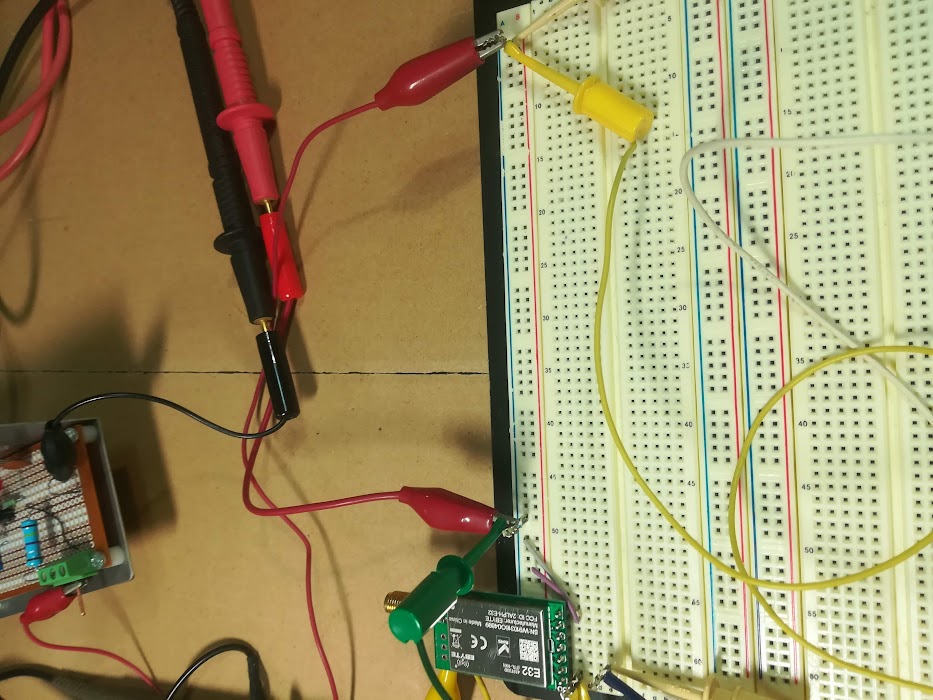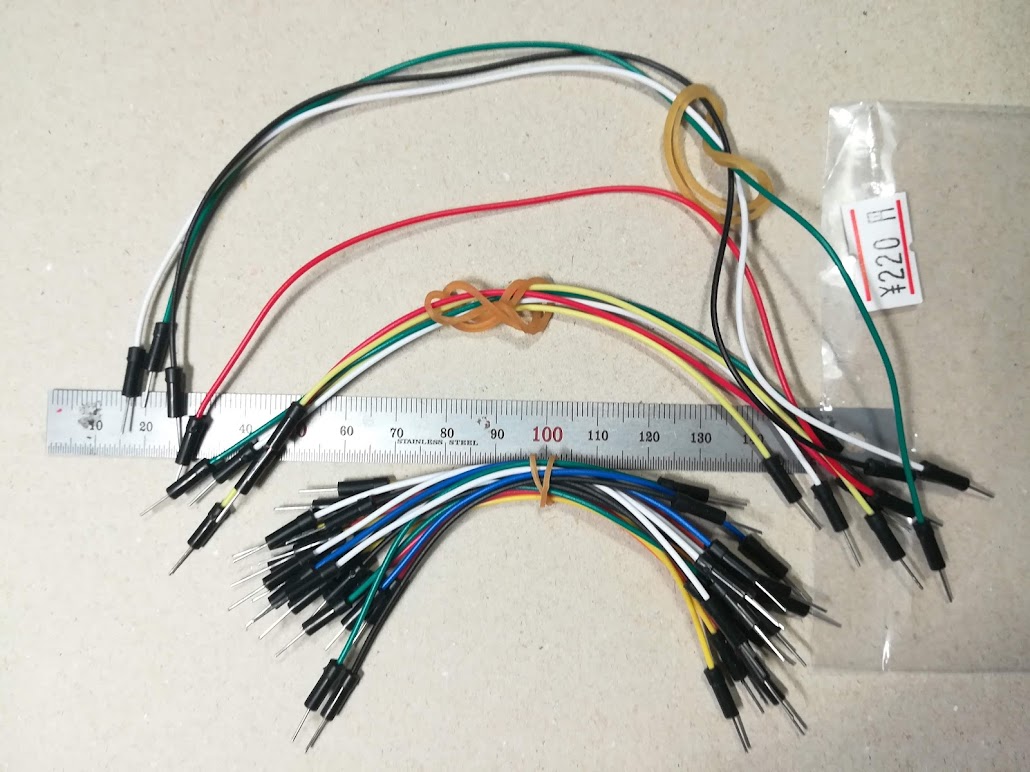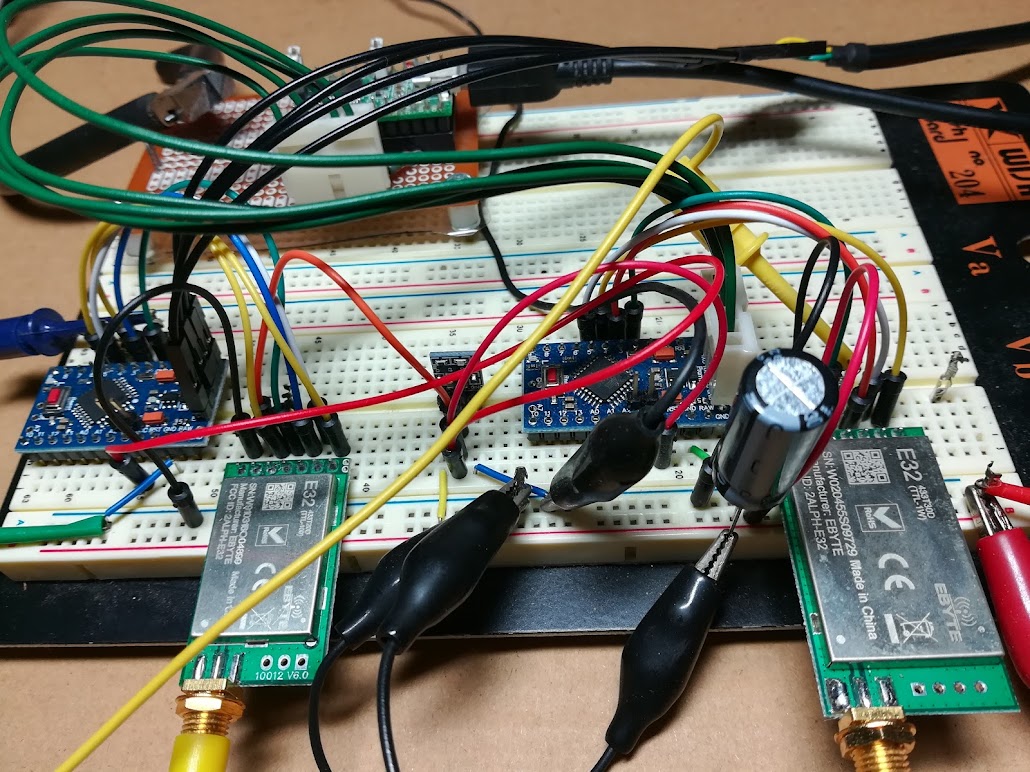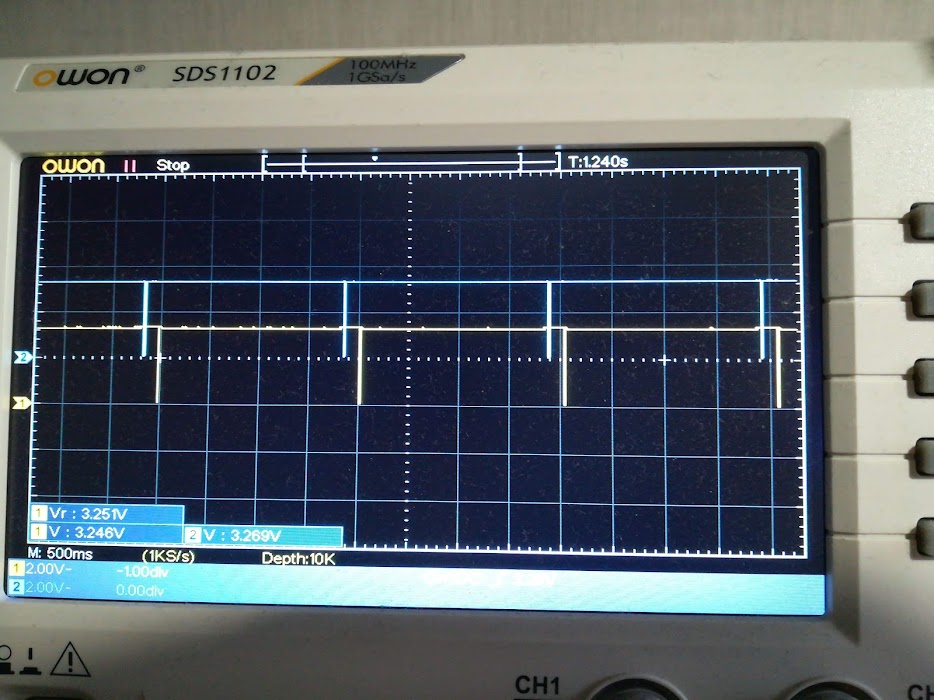Background
Ebyte LoRa module can transmit long range. LoRa frequency is lower than 2.4GHz, longer range will be expected.
Summary
Enoki tried the Ebyte E32 for transmitter and receiver on the same breadboard. Enoki confirmed the signals by DSO and serial monitor.
Ebyte LoRa E32 transmitting and receiving indoor test 2021-09-20
Ebyte LoRa series
Enoki chose UART interface that is easy to test and assemble on an universal board, and 433 MHz because range decreases proportional to frequency.[1]
How to buy
The direct shopping is expensive compared with AliExpress a little. But AliExpress circulates
a lot of false goods. And so Enoki bought a E32-433T20D at first.
Consumption current
Enoki confirmed consumption current on 2020-08-07 on the old breadboard by Tiny power supply
and DMM PC510, as shown in Photo1 and Table1.

| Mode | M0 | M1 | Current |
| Normal | 0 | 0 | - |
| Wake up | 1 | 0 | 16.4mA |
| Power saving | 0 | 1 | 1mA |
| Sleep | 1 | 1 | 3.8uA |
Power supply voltage was 3.29 V (500mV/div 50ms/div). Power saving 1mA was fluctuating.
Notable parts
Try breadboard
When Enoki used a breadboard a long time ago, Enoki has felt the breadboard liability was not
good since then.
Enoki wired XBee, TWE, nRF24L01+ and other wireless modules on universal boards by soldering up to now.
Enoki prepared a pin wire set on 2020-09-27 as shown in Photo2, and began wiring on the breadboard this time.

Arduino pro mini
E32 series interface voltage is 3V3. And so Enoki adopted Arduino pro mini to control E32
wireless module.
Arduino pro mini works at 3V3, unnecessary for terminal protection circuit between wireless module and MPU interface.
Power supply
Ebyte recommends 5V power supply for long range transmitting.
And so Enoki supplied with 5V for transmitter and 3V3 for receiver through 3V3 and 2 Arduino pro mini.
USB to serial converter
Enoki has used Akizuki FT232RL USB-serial
converter including FTDI chip and FTDI TTL-232R-3V3.
Arduino uses DTR signal to write. Although Akizuki one has DTR terminal, FTDI TTL-232R-3V3 has none. Enoki used RTS for DTR.
But the both connectors and header array orders are different. Enoki bought pin and receptacle black lead wires as shown in Photo1 on 2021-06-02.
Transmitting and receiving confirmation
Enoki assembled transmitter and receiver on the same breadboard as shown in Photo3.
E32-433T20D and E32-433T30D are for receiver and transmitter each.

Transmitting and receiving signal
Enoki found Arduino programs to control Ebyte wireless modules.[2]
Enoki modified and loaded them. Enoki confirmed transmitting and receiving signal by DSO SDS1102 on 2021-06-03, as shown in Photo4. These experiments were done on 06-05, 06-12, 07-03, 07-09 and 09-15.

The DSO showed that the receiving signal delayed for 0.2s. Arduino Serial Monitor also showed the successive messages from the transmitter.
Conclusion
Enoki confirmed Ebyte LoRa transmitting and receiving signal. But it took more than a year.
Enoki doesn't know why it was too late. Enoki remembers some trouble and had better check the process and causes not to repeat mistakes.
Ref
[1] All Products > UART[2] Arduino LoRa Network Part I: Radio Basics and Range Tests
© Enoki 2021 September 21